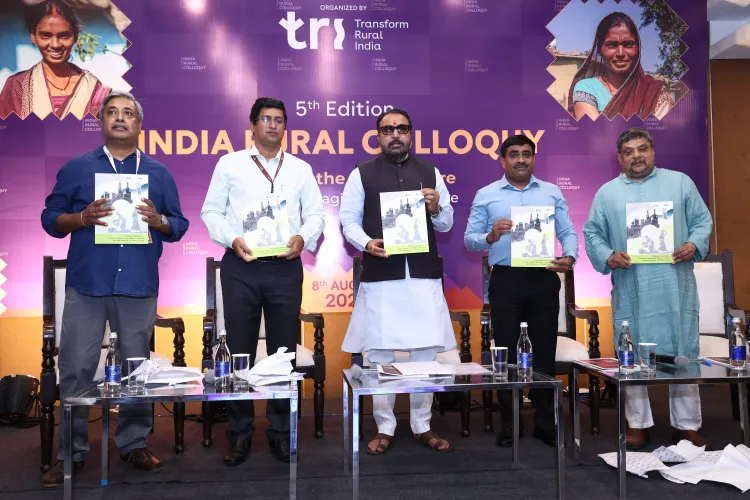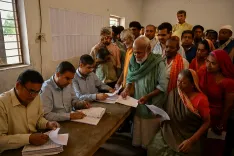How Can We Ensure Rural Women Are Central to Climate and Health Agendas?

Synopsis
Key Takeaways
- Rural women are essential to agricultural productivity but face significant health disparities.
- The impact of climate change on health is particularly pronounced for rural women.
- Strengthening rural health infrastructure is vital to withstand climate shocks.
- Community-led initiatives can enhance support for rural women's health.
- A comprehensive approach is necessary to address the intersection of climate and health.
New Delhi, Aug 8 (NationPress) Union Minister of State for Health Prataprao Jadhav emphasized the necessity for collective action to position rural women at the core of both climate and health agendas. His remarks were made during the launch of a white paper by Transform Rural India (TRI) and the Development Intelligence Unit (DiU) at the fifth edition of the India Rural Colloquy held in the national capital.
The white paper investigates how climate change affects the health and well-being of rural women.
"We need to cultivate neighborhoods of care and villages where panchayats, ASHA workers, and other frontline workers lead the charge in constructing community health ecosystems," Jadhav stated.
"Let us unite to guarantee that the government, citizens, society, health institutions, and the community prioritize rural women in initiatives concerning water, air, energy, and health. Only then can we realize the vision of a ‘Viksit Bharat’ for every woman in every village," he added.
Despite making up 73 percent of the rural agricultural workforce, women own less than 14 percent of land, which hinders their access to credit and support.
The white paper indicates a rising burden of non-communicable diseases (NCDs) among rural women.
Only one in four women suffering from hypertension receives appropriate care. Moreover, crop failures and male migration have been linked to increased levels of anxiety and depression.
Rural women face disproportionate food shortages, with over half being anaemic and underweight. The escalating challenges posed by the climate crisis threaten food production systems even further.
"We have sought to intertwine evidence, field realities, and policy reflections to highlight the silent crises that millions of women grapple with amid shifting climates, fragile health systems, and systemic inequalities," stated TRI Associate Director Shyamal Santra.
The white paper also advocates for enhancing rural health infrastructure to endure climate shocks, educating frontline health workers in climate-sensitive care, and harnessing community-led initiatives.
It further calls for redirecting Corporate Social Responsibility (CSR) and existing government programs towards investments in climate-health focused on rural women through a comprehensive, intersectional approach to tackle emerging challenges and health issues.
Adopting a "Neighbourhood of Care" approach, which incorporates localized, participatory ecosystems that integrate health, nutrition, water access, and mental well-being within local institutions and forums, emphasizing family kinship and social networks, was also underscored.






